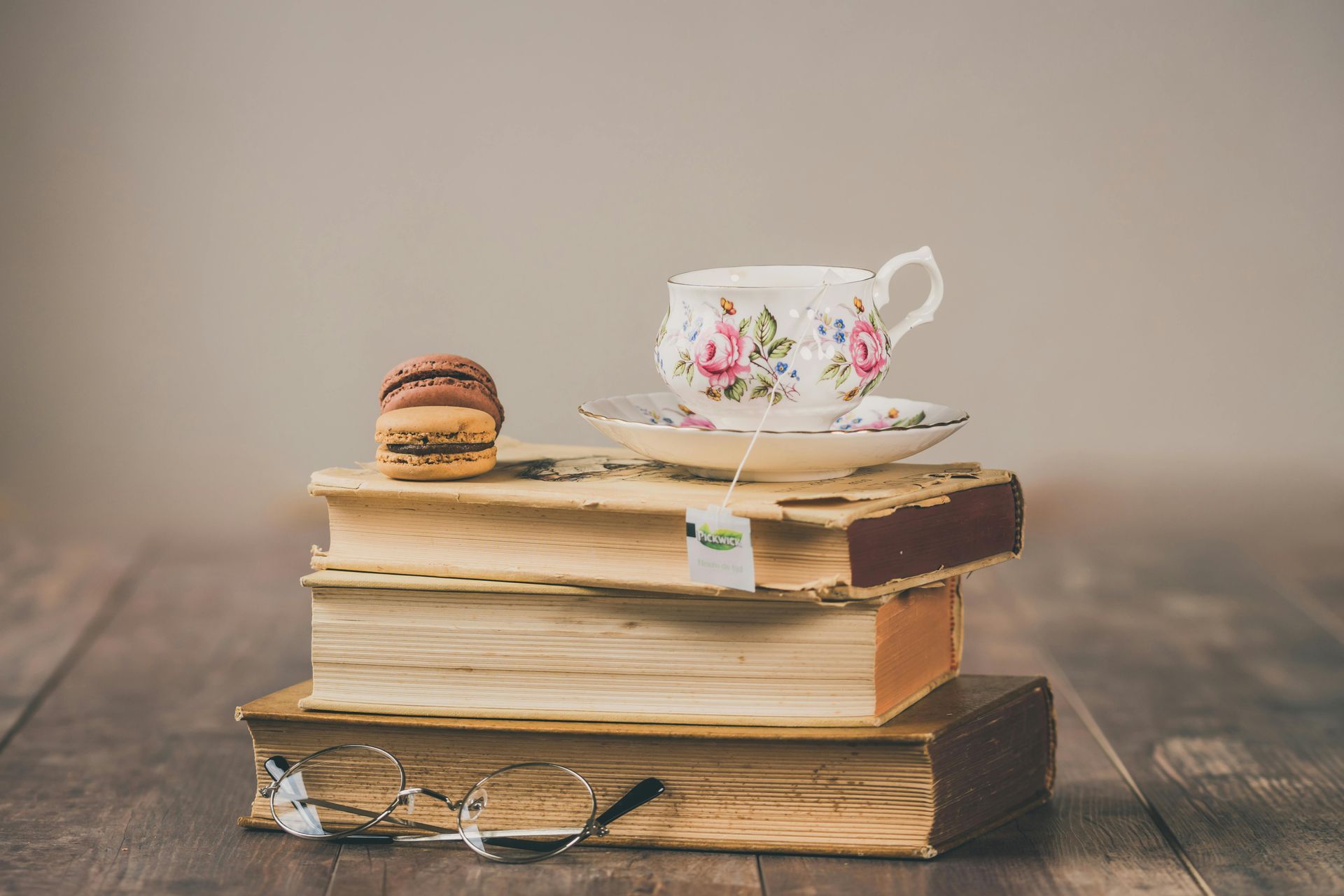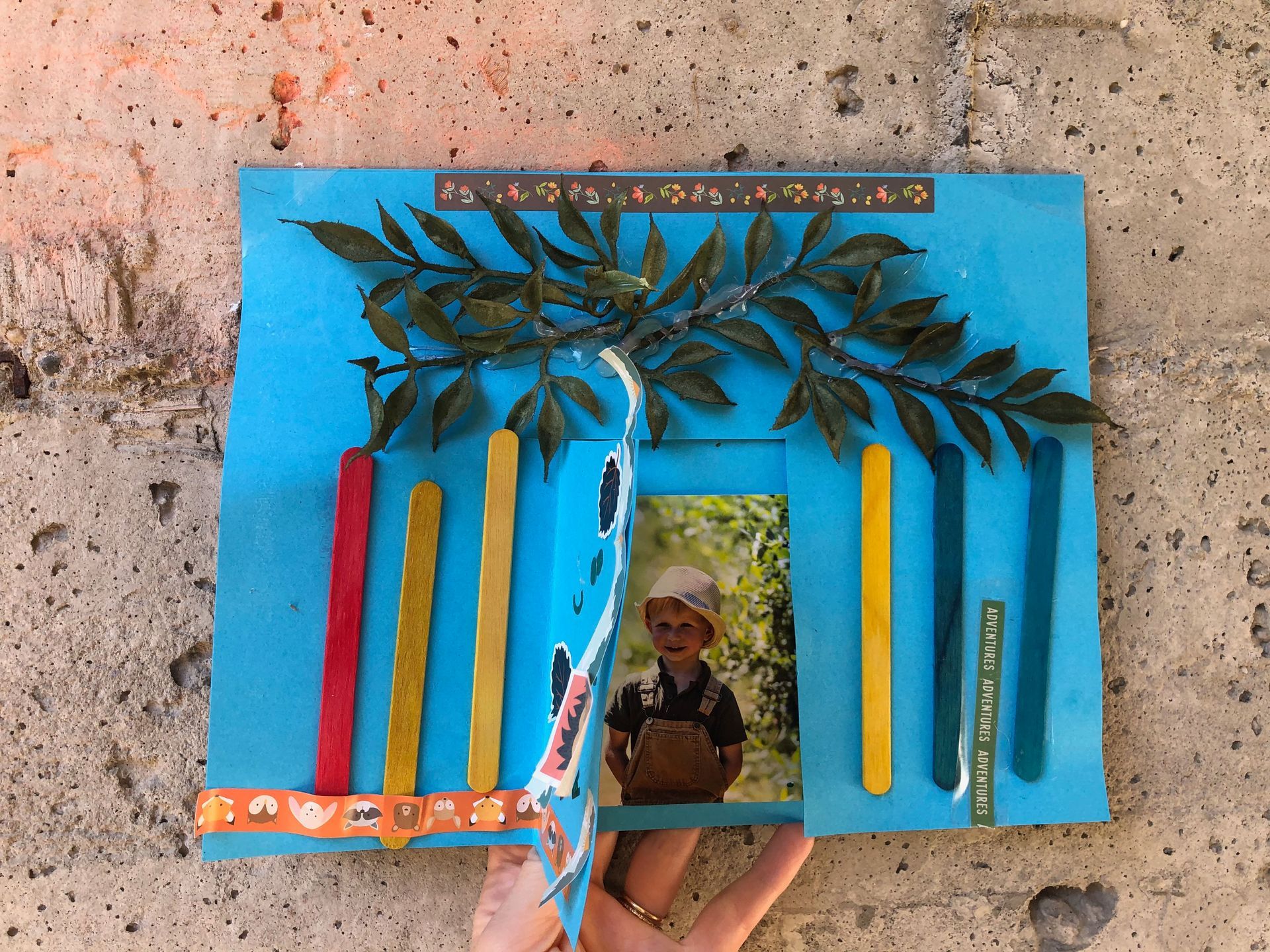By Kari Ragan
•
January 4, 2024
As I reflect back over the volumes that have made pleasant many a drive, it's always neat seeing all the titles. All that I've read or listened to over the previous year. There are inevitably some duds, but also many that I began knowing I would enjoy, and was not being a bit disappointed. It feels like a victory to tell you that two of the books pictured above I did not finish. There are other books I began this year and wish I had abandoned! No sense in slogging through a dull book. Or, at least one that just isn't for me. Without further ado, here is my book report for this past year. Summary: 27 audiobooks, 13 physical books The Guernsey Literary and Potato Peel Pie Society By Mary Ann Shaffer and Annie Barrows, 2008 I simply love this book. Since first setting foot in Guernsey with Juliet in 2018 I have listened to this book every year. There are quotes that linger with me still. It’s the characters. The wealth of life experience that Mary Ann brought to this novel. I read that she worked in a library, at a book shop and in an editor’s office. She stumbled upon Guernsey by accident and wanted to somehow include all the interesting tidbits she learned about the occupation. I love how she wove it all so masterfully together. And Juliet is the kind of heroine you love. Like Jo in Little Women. Full of her own faults and shortcomings, but also a perfect darling who you long to be, or at the least be best friends with. It’s about a dark, fearful, excruciatingly difficult era but it doesn’t feel heavy. Seen through Juliet’s eyes, the shadows are there but also the sunshine. It’s hard to put into words what an incredible book this is, or even why it moves me so. But it does. And I know I’ll listen to it yet again. Ivanhoe By Sir Water Scott, 1819 Dungeons, torture and the wrong heroine... sigh! Once you make it past the LENGTHY prologue where Scott gives seemingly every caveat imaginable, you delve into the infamous Ivanhoe. It's slogging for the first few hours... wondering if it'll be like this for the whole book, just so you can say yes, you've listened to Sir Walter's Ivanhoe. But, then you meet the familiar personage of Robin Hood, his merry men and Friar Tuck. Isaac the Jew and the fair Rebecca are introduced and things start getting exciting! Alas, then you get worn down by the weight of all the evil pervading that era. The superstition, lawlessness, horrific cruelty and prejudice... everyone doing whatever is right in their own eyes. I felt as though the middle portion of the book was exciting and interesting, but by the end I was just listening to finish it, not because I found it enthralling. The speeches are long winded, the villains so senselessly cruel and the story on the whole depressing. Why does Ivanhoe choose Rowena? And if she's the lady fair, why is Rebecca the focus? And while everyone may be prejudice against and hate the Jew, where are the people who are above that pettiness of the day and actually see things for what they are, not just what they're told to think and believe by the powers that be? I think the most frustrating part was that it felt like Isaac and Rebecca were the only ones with a consistent, moral character. Everyone around them was blinded by lust, greed, power and privilege. Listening to a book like this makes you certain once more that it's aptly dubbed the "Dark Ages." You wonder how anyone survived. I'm just not sure why when writing a fictional account an author would choose to make the book so depressing. I think it was the "holy men" that rankled me the most. Those that claimed to know God, but were some of the most vile characters. I liked how Scott opened each chapter with a quote, often from Shakespeare. I enjoy chapter previews like that. I also appreciated that though the main characters found themselves in tough spots, they made it through. The history of the Norman/Saxon conflict etc. was interesting, but I didn't feel like it was super clear. What came forth most strongly was it was a dark, dark age. In and Out of the Garden By Sara Midda, 2008 I was gifted this lovely book by a friend and was immediately drawn in by the exquisite watercolour illustrations. They are so lovely! When I set out to read through the book however, frustration swelled within me. The text is just too small and faint to read. It’s a nice thought to have it hand lettered, but far from practical. What I love are the illustrations of plants and fruit, vegetables and garden. Beautiful! What I do not love are the people. They are absurd and borderline lewd. Something so unsettling about them. They are quaint but also wretched somehow. I can’t explain, just not my taste. And where to begin about the content! Sigh… I WANT to love this book, but the text is just too much. Is this a reference book? A historical treatise on gardening? Or simply a book you flip through at a quaint bed and breakfast? If 1/3 to even 1/2 of the text had been culled it’d be a kindness to the reader. Some of it is so charming and the other half a waste of your time. Also, it’d be good to know where she got some of the information, or what culture she was pulling from because for instance the pages about what different fruit and vegetables represent is stuff I’ve never heard and even contradictory to what I’ve heard them to mean in other cultural contexts. For example she wrote that pomegranates symbolize foolishness but in the Bible they are a symbol of fertility, abundance and beauty. It’d be helpful if she’d put even a parenthesis that gave the country of origin for some of the content. Anyways… it’s yet again one of those books that could be really great, but there are some things about it that just drive me crazy. If this is primarily just a pretty book to look through (which it is!) then please edit the text way down and produce it in a format where it is actually readable. As many others have reviewed, even with a magnifying glass or glasses, it’s difficult and just not necessary. This isn’t an old book, it was done in 2008. I find that rather unacceptable. We’re I “the king of the forest” I’d ask that the people be portrayed a little differently, the text printed (in a pleasing, graphic way) and the text really edited way down. It’s information overload and I think very few people really want to stumble through old English these days. The notes cute rhymes, and historical anecdotes about women adorning themselves with carrots are wonderful. But some of the other stuff needs to go. Black Rock: A Tale of the Selkirks By Ralph Connor, 1898 This is the story of a mining camp in BC, Canada. It felt written in that very preachy Victorian style that continuously harps on the evils of alcohol (like a broken record). It tells the story of several people who are seeking to show the miners a better way of living for God, and saying no to drinking and all the evils that go along with it. It was encouraging to once again be reminded that there are many throughout history that have done something to stem the tide of evil. It’s based on a true story, and for what it is I think a worthwhile book. Personally though I felt like I lost interest about half was through and then was just seeking to finish it. The writing style just didn’t feel compelling enough to engage. I felt like it could have been shortened quite a bit and therefore been a more powerful read. Rather than just point out how evil drinking is, I wish they would have talked about what led there. By being part of a mining camp the men were already operating in a broken system - ripped away from the safety net of family and community. In the environment even the most godly, disciplined man would be hugely tempted by whatever was before him. Reading this I wanted to understand more about what led them to the mining camp in the first place. On the whole, a decent book but just not that great. At the Foot of the Rainbow By Gene Stratton Porter, 1907 You can skip this GSP, it’s sadly a bit of a dud. Like me, you’re probably interested in this book because you love GSP’s books. Yes, she was a phenomenal woman and she wrote so many amazing books. This one though feels off on several fronts. The narrator - you will either love him or hate him, that’s a personal preference. For myself I thought the accents actually made the book more enjoyable. The plot - a man pines for 15 years over the woman he loves, while enabling a lazy drunk (who happens to be his best friend) to go on being a lazy drunk until he dies of substance abuse. Taken from a Biblical standpoint, it’s just not right. So Danny doesn’t get to marry the girl he loves. Go find another great woman, Danny! So you didn’t get Mary, but you could have had a wonderful life with some other woman. And perhaps by being busy caring for your own household, Jimmy and Mary would have had to work things out between them. That’s real life - caring for the people around you, trusting God, choosing contentment about what you can’t change and praying for the things you so long to see change. I’d have preferred that ending - where Jimmy learns to love Mary, and were Danny’s idolization of her ends. Because, after the honeymoon life is still just lots of ordinary days, lots of ordinary work. The book ends with Jimmy dead (you knew that had to happen) and Danny and Mary happily in one another arms at last. But, is that really the best outcome? Danny enabled Jimmy to remain as he was, never improving, never learning from his mistakes or becoming a better man. Mary seemed bitter to the core, even allowing three babies to die through her own disinterest in their lives, since her whole life was wrapped up in hating Jimmy and pinning for Danny. And, sadly the book just drags. Had there been interesting tidbits throughout, or just more of the real life ups and downs, but no. Danny is all shining goodness and Jimmy all evil deceit. Listening to it just rankled my soul, as it felt like so much unhealthy co-dependency masquerading as love when in reality it was too selfish to confront and do the hard work of changing. I wish the priest had been a bit more Biblical in his counsel, pointed them to the life changing truth of scripture. Anyways, in summary I’d say this is a GSP you can safely skip. Go enjoy “The Harvester,” “Laddie” and “Keeper of the Bees.” :) Scotch Broth By Anne Hepple, 1933 I thoroughly enjoyed this book! It was a serendipitous thrift store find. The title caught my eye. Bless the previous owner who had the thoughtfulness to glue in the cover a book summary. It’s the tale of two middle-aged sisters, one married and one not, who set out to find the perfect cottage. They find a charming cottage, fix it up, and encounter many mishaps and adventures along the way. It’s the main character's writing style that makes the book. Anne Hepple is just so funny, I loved the descriptions. It was refreshing that what was humorous or most enjoyable were all the things that were so commonplace, so trivial. I felt like I took a trip to the moors, and rambled over the hillsides, and nestled in front of the fire with a bowl of soup. It was a delight to read. Walk with Me By Annie Wald, 2012 I liked the premise, but the allegory just started feeling too forced so I put it down. The Lady and the Lionheart By Joanne Bischof, 2016 Initially, I thought it was sappy and I was just trying to get through it since it was a recommendation from my mom. But about halfway I started to really enjoy it and I was certainly hooked by the end. Reading other reviews, I definitely can attest to the fact that there was far too many lines about “whispers of hair,” ha! Reflecting on the book I appreciated that they humanized the circus. It wasn’t all just godless evil thinly veiled between plumes and sequins, there were also real people just trying to make a life. I loved the parallel between Ella and Charlie both having a body ruined by the lust and greed of another, but finding redemption and healing in the love of God, and the love of each other. I felt like Ella was the most unlikeable character though in the book, she does good, but she also seemed very irrational, and just sort of void of depth. Charlie is wonderful, who wouldn’t fall in love with him and all the other characters that you’re introduced to. I loved that throughout the book there was a mystery, continuing to unfold as you learned more about Charlie’s life, Ella‘s life. Them making a home for the lions in the end seemed rather unrealistic, but when you’re writing a fictional novel, you can have it end as you like. Overall, it’s a sweet love story and refreshingly clean. Charlie has unmatched character and it’s wonderful to be reminded that good men like him, though few, and far between, do exist. Blessed to be married to one of them :) The back and forth between narrators was enjoyable. Miss Hickory Carolyn Sherwin Bailey, 1946 I listened to this book on YouTube because I had recently finished reading Bailey’s “Children of the Handcrafts” which I thought was excellent. I think had this story been edited way down it would have been far more enjoyable. As it was, it rambled all over the place. Bailey interwove a lot of interesting things about animals, nature and history into the story. And any little girl who has ever played outside will love her descriptions of Miss Hickory. That was by far the sweetest part of the story - imagining this little woman come to life and her adventures with various animals. I just felt like it was a little scary at times, too scary for a young girl to read. So, I’m not really sure who the intended audience would be. I was only just introduced to this book as an adult. I felt like a third of the way through I was ready for it to be done. Having the book conclude with her losing her head, that’s just disturbing. A very poor choice. There are some sweet parts, but on the whole it’s a strange book and not one I’d recommend. On the contrary though, “Children of the Handcrafts” was delightful. Lots of interesting stories about industrious children.










